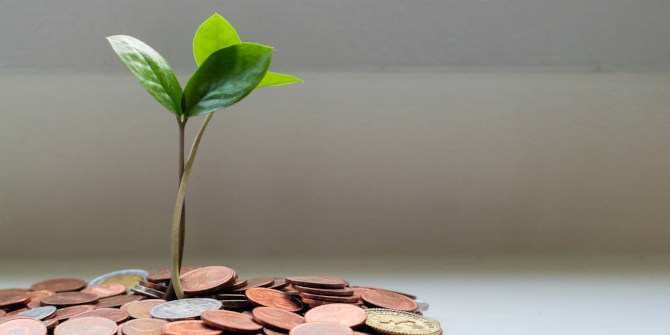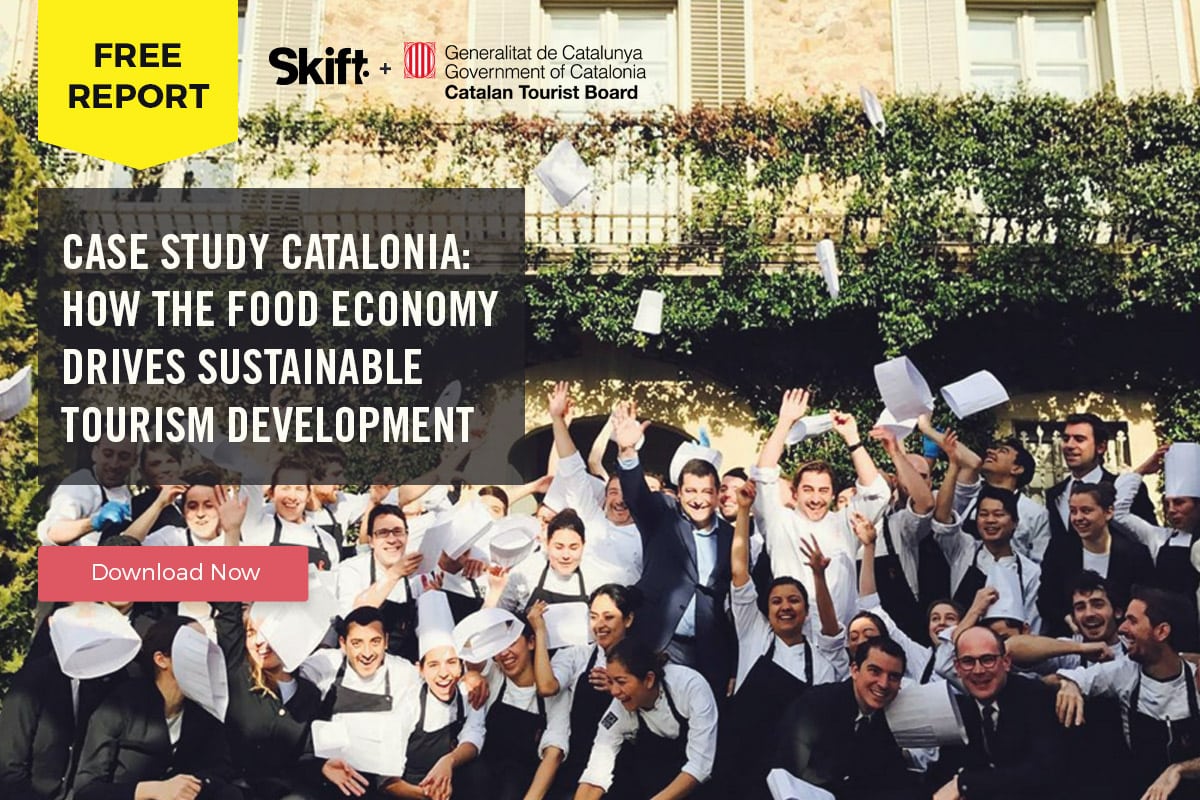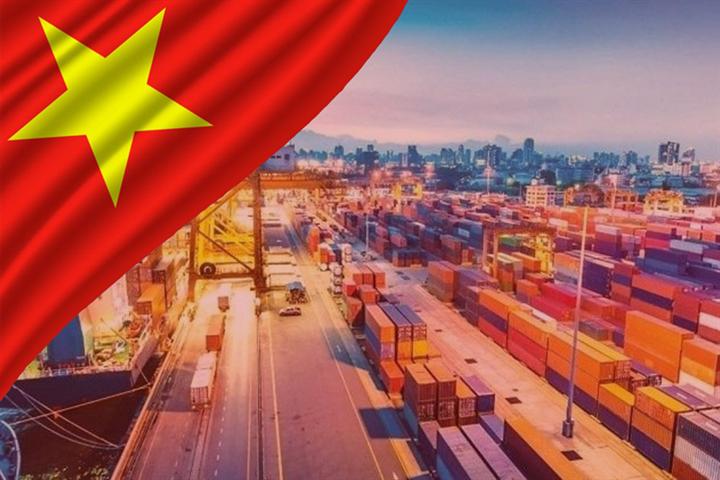Climate change has sparked interest in “degrowth” strategies, whereby countries would prioritize environmental protection over economic growth. Luca Cigna argues that given the growing importance of climate to national economies, scholars of comparative political economy should better integrate degrowth and post-growth models into their analytical frameworks.
A specter haunts Europe: that of decline. The idea of shrinking the “size of the economic pie” in the face of increasing climate stresses has been widely discussed in mainstream media. Perhaps surprisingly, institutional actors such as the Intergovernmental Panel on Climate Change (IPCC) and the European Environment Agency (EEA) have also taken this debate seriously. In an article eloquently titled “Growth Without Economic Growth”, the EEA warns that, given the detrimental impact of economic growth on the environment and human health, “societies need to rethink what is meant by growth and progress and their significance for global sustainability”. .
But first, what is degrowth? Jason Hickel, one of the most respected students of this approach, defines it as a “planned reduction in energy and resource use designed to rebalance the economy with the living world in a way that reduces inequalities and improves human well-being”. .
According to degrowth and post-growth researchers, economic growth is irreconcilable with environmental protection. On the other hand, the satisfaction of human needs can go through the reconfiguration of labor markets and welfare states, that is to say without necessarily making economic growth a mantra. This approach contrasts with the so-called “green growth” model, which suggests that economic expansion can continue without ecological damage (the famous “decoupling”), in particular thanks to technological progress.
Degrowth and Comparative Political Economy
Despite growing concern about impending climate catastrophe and heated debates between ‘green growth’ and ‘degrowth’ actors on how to deal with it, the voices of comparative political economists were conspicuously absent from these discussions.
For decades, comparative political economists have viewed growth not just as an analytical tool, but as a real normative imperative. Implicitly (in academia as elsewhere) there has been a common assumption that more growth is better. It’s not unexpected. Since the rise of capitalism, accumulation has been a standard goal for the Western economic order. The belief that growth is good can be easily located in the ideological toolkits of Keynesian and neoliberal economists. By contrast, the climate crisis is a relatively new issue. From this perspective, scholars of comparative political economy have often attempted to read developments through the interpretive lenses of earlier eras (when climate change was of little concern).
Recently, there have been some attempts to adjust comparative political economy to meet the new realities in which we live. An example is a volume edited by Anke Hassel and Bruno Palier last year which traces the evolution of political economies since the 1970s by looking at “strategies for growth”, i.e. industrial reforms , labor market and social protection that seek to influence the economic trajectories of countries.
However, despite the innovative nature of this approach, the principles of degrowth and post-growth are only briefly mentioned, the book simply noting in its last paragraph that “traditional patterns of growth will be increasingly challenged” . Indeed, contributors suggest that because governments have failed to increase investment in “green growth,” the topic is off their research agenda.
While it’s true that you can’t study what you don’t see, comparative political economists should pay more attention to the climate crisis and its implications for society. A good starting point would be to recognize the existence of debates around growth, through which eminent intellectuals and institutes have proposed alternative approaches over the past decades.
Even before the Covid-19 pandemic, the global consensus on the subject seemed to be gradually shifting, with eco-social rights, rather than growth, moving into the spotlight. In the broader realm of political economy, new theories of post-growth and welfare have flourished. Moreover, researchers in comparative political economy and the welfare state are well equipped to integrate the climate emergency into their research agendas.
A roadmap for future research
There are at least three areas in which scholars of comparative political economy could incorporate degrowth approaches into their work. The first is related to sustainability of the welfare state. An example is a recent study that tests the extent to which socio-economic institutions improve energy efficiency by pursuing “needs satisfaction” goals such as life expectancy, access to clean water, education and a minimum income. The study finds that while factors such as public services, income equality and democracy are associated with greater need satisfaction and lower energy needs, extractive practices and economic growth lead to lower needs satisfaction and higher energy needs.
In other words, better socio-economic institutions help countries achieve their human development goals with low energy consumption. This idea is not new to the literature on welfare and social investment. Resilient welfare states that combine social protection or “buffer” measures with new social policies, such as lifelong education and work-family policies, are more likely to achieve economic prosperity and eco-social equality.
The second point of intersection is in the studies of global inequalities. Two numbers – 12 and 50 – sum up the relationship between global injustice and ecological crisis. On the one hand, rich countries representing 12% of the world have emitted more than 50% of carbon dioxide emissions since 1750. On the other hand, the poorest 50% of the world’s population have captured only 12% of total growth over the past four years. decades.
Welfare states themselves are based on this hypocrisy: the social rights established in the “golden age” by the Western working class were financed via extractive institutions in the former colonies. Mounting evidence shows that developing countries and poorer segments of the world’s population are already bearing the brunt of the climate emergency and will be increasingly exposed to these risks. Global injustice, within and between countries, must be reversed using international cooperation on eco-social policies in tandem with global redistribution mechanisms to offset the green transition.
Finally, there is the Covid-19 pandemic, which revealed the human and social infrastructure on which our societies are based. Governments have faced difficult trade-offs between economic growth and health care. Far-right populist leaders have argued that “the cure cannot be worse than the disease”, putting profits ahead of people’s lives and safety.
Conversely, countries focused on health and social necessities, such as New Zealand, suffered less damage in both human and economic terms. Moreover, the pandemic has revealed the crucial role of workers in supposedly “low value-added” services, including nurses, orderlies and supermarket cashiers. In several countries, plans are being developed to ensure that human capital recovers from the impact of the pandemic. These examples underscore the need for scholars of comparative political economy to better integrate the green transition into their analytical frameworks and to take themes such as green growth, degrowth and post-growth seriously.
Note: This article gives the author’s point of view, not the position of EUROPP – European Politics and Policy or the London School of Economics. Featured Image Credit: Visual Stories || Michele on Unsplash












